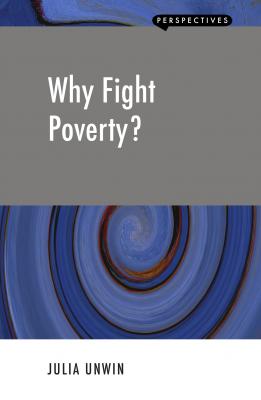Why Fight Poverty?. Julia Unwin
Читать онлайн.| Название | Why Fight Poverty? |
|---|---|
| Автор произведения | Julia Unwin |
| Жанр | Социология |
| Серия | Perspectives |
| Издательство | Социология |
| Год выпуска | 0 |
| isbn | 9781907994210 |
Copyright © 2013 Julia Unwin
Published by London Publishing Partnership www.londonpublishingpartnership.co.uk
Published in association with Enlightenment Economics www.enlightenmenteconomics.com
All Rights Reserved
ISBN: 978-1-907994-21-0 (ebook)
A catalogue record for this book is available from the British Library
This book has been composed in Candara
Copy-edited and typeset by T&T Productions Ltd, London
Cover design: Kate Prentice
Contents
Introduction: why fight poverty?
Why is there little public support for solving poverty?
Conclusion: how can we fight poverty?
Preface
The fight against poverty in the United Kingdom has become at the same time both angry and fruitless.
Despite a historic and continuing concern, there is no shared understanding or perspective on poverty, its causes or its solutions. Interventions to reduce poverty have been piecemeal, poorly understood and have rarely had the sense of shared endeavour and commitment that are central to success.
In this book, I argue that we urgently need to resolve poverty, because it is costly, wasteful and risky – and that we can do so.
Emotions normally have little place in works of either social policy or economics. Such books pride themselves on rigorous analysis, careful diagnosis and thoughtful prescription. This book acknowledges the important contribution of these disciplines but does something different. It focuses on the sentiment and the emotional responses that shape thinking about poverty and inequality and provide such powerful obstacles to effective response.
Attempts to end poverty have foundered, partly because they are not supported by the public. Why? Because powerful emotions get in the way: shame, fear, disgust, difference and mistrust are created and reinforced by our attitudes to poverty and the stories we tell about it.
I argue that our efforts to tackle poverty have been impeded by the political right’s tendency to focus on individual agency – people’s capacity to act independently and make their own free choices – and the political left’s tendency to focus on structural overhaul – in other words, changing the systems and structures that govern society, including taxes, benefits and services. This political stalemate has shaped a widespread public belief that poverty is inevitable.
I dispute this belief that current levels of poverty in the United Kingdom are acceptable and inevitable. They can be reduced.
Those concerned about poverty are decried as almost automatically politically motivated, with a hard-wired assumption that anyone concerned about poverty must, by definition, be left wing. And yet as soon as people of any political persuasion, or none, join the debate, a further false polarization is created: poverty is either seen as simply a product of social and economic structure, or conversely as solely a matter of individual choice and circumstance.
In the resulting barrage of noise and argument, the damage caused by poverty to individuals, families and communities and to wider society is easily overlooked.
This creates a stalemate. Reducing the levels of state support to people in poverty is politically popular. This in turn justifies a focus on only this aspect of relieving poverty. Anxiety about the lifestyles of individuals and families becomes the stuff of salacious and highly critical descriptions of a life in poverty, adopting preconceived positions and ignoring both the experience of people who are poor and the evidence about what their lives are really like.
Attempts to fight poverty rapidly descend into heated argument, shedding little light and resolving nothing. What is more, this stalemate leaves people facing just the same risk of poverty, and just the same challenges in overcoming it. It ensures that both political leadership and administrative effort are noisily diverted from the task of developing a ‘social contract’ fit for the twenty-first century that allows people to maximize their potential.
A social contract is a settlement between the people and the state. It describes what people can expect of each other, of market and community institutions and of the state. This set of expectations creates a framework that aims to improve lives for everyone’s benefit.
We will not make sustained progress on reducing poverty, though, until we acknowledge our own attitudes and value people who are in poverty.
We can only create a strong, shared understanding of poverty and how to end it when we recognize that ‘they’ are people like ‘us’. Looking at individual agency and structural change separately will not achieve the change we need – we must address both together.
Acknowledgements
This Perspective has been shaped and informed by the work of the Joseph Rowntree Foundation and the Joseph Rowntree Housing Trust and their shared long-term commitment to use evidence from research and experience to influence lasting social change.
The book would not have been completed without the encouragement of Abigail Scott Paul, the skilled and patient editing of Paul Brook and, above all, the diligent and supportive research done by Beth Hurrell, who must take huge credit for the thorough application of evidence and the distillation of so many disparate pieces of research. I am also grateful to enlightened economist Diane Coyle who prompted me to write this. Thanks also go to Emma Stone, Chris Goulden and Aleks Collingwood. As ever any errors and mistakes are all mine.
Chapter 1
Introduction: why fight poverty?
People have been concerned about high levels of poverty for centuries, and that concern has been expressed in various ways throughout history.
Anxiety about how ‘the feral’ and ‘the untamed poor’ behave has jostled uneasily with a concern for morality, competed with a sense of shame, and even co-habited with guilt at the existence of hardship in a wealthy country.
The real nature of poverty has always been disputed and there has been a strong and compelling narrative about how personal character keeps people in poverty.
Persistently, through
